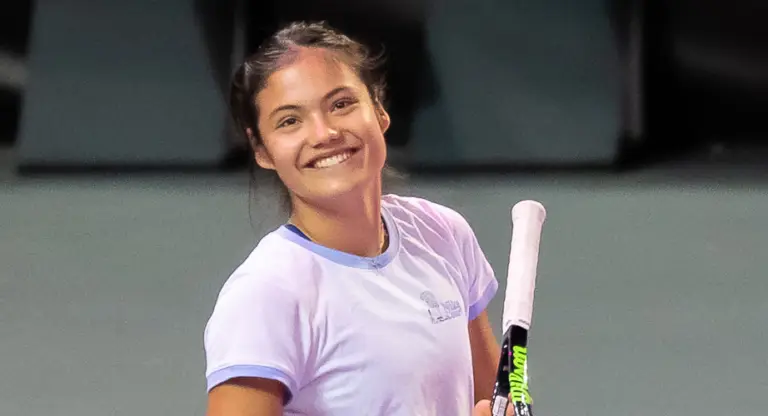In a fitting conclusion to a fairy-tale year, Emma Raducanu has been named the BBC’s Sports Personality of the Year following the tennis star’s exceptional sporting triumph. In a year of sporting excellence for Britain, Raducanu and her fellow winners embody the powerful role athletes have within society and their ability to tackle challenges facing our society including gender inequality, racism, and mental health. Above their sporting merit, it is their ability to be catalysts for positive change which makes these individuals so special.
The US Open Champion, then 18, ended Britain’s 44-year wait for a women’s Grand Slam singles champion, and even more remarkably did so without losing a single set. Speaking to the show, Raducanu quipped that despite her win she was simply a “19-year-old from Bromley, that’s who she is, nothing else to it”.
The grace with which Raducanu has responded to huge success at such a young age is just one of the reasons that she has become a wonderful role model, especially to young girls in sport. She has inspired many to try out tennis and prompted hopes from the tennis community, including Andy Murray, that her popularity will result in a resurgence in the popularity of the sports itself.
More impressively, she has used her US Open triumph as a platform to promote equal gender and socio-economic opportunities. In the last year, Raducanu has discussed access to tennis with the Prime Minister and has advised Amazon on how best to use money generated by her US Open final’s airing to promote the sport and encourage the next generation of professional female tennis players.
Many of the shortlisted contenders can count themselves unfortunate and in any other year would have been nailed on favourites to win the prize. Raheem Sterling was England’s top goalscorer in the men’s football team, as they reached their first international final since 1966. While off the field, his personal story of overcoming family trauma and attacks from some sections of the media to achieve success, coupled with his leadership in shining a light on, and handling of, racism, has meant his achievements go far beyond the world of sports.
The same can be said of Tom Daley, who won gold for the first time at his fourth Olympics in Tokyo. Like Sterling, Daley is much more than a sportsman, using his platform to champion LGBTQ+ equality, and used yesterday’s award ceremony to do so again. Daley eloquently spoke about his husband and the anguish of losing his father, while advocating for the importance of making sport inclusive.
Simone Biles, the most decorated female gymnast in world championship history, received the Lifetime Achievement Award. While she was unable to build on her sporting successes during the Tokyo Olympics, her bravery to speak openly about her “invisible injury” brought international attention to, and advanced the discussion of, mental health.
The importance of sports within society was best exemplified by the award of the Unsung Hero prize to Sam Barlow, Founder of the charity FitMums. The charity supports members of their community to become more active, and in doing so tackles stigmas and helps individuals through difficult moments within their personal lives. Barlow herself spoke of the death of her husband from cancer in 2020, and paid tribute to her organisation’s volunteers and asserted that “whatever happens, have hope”.
In a year that has been so difficult for so many, our sporting superstars, whether they intended to or not, have been a shining light in the dark and have used their positions of influence to highlight major societal issues, become exemplary role models, and give back to communities most in need of their support.
It is now time for the Government to match their efforts. With the ongoing pandemic, active participation in sport remains a challenge – however, assuming the situation improves, the Government must fully appreciate the positive role sports plays within the community. Earlier in March, the Government announced an extra £25 million of new funding to support grassroots football, enough to build around 700 new pitches. This is a positive starting point, but more can be done.
In order to further improve access to sport, the Government could provide extra funding to community programmes dedicated to increasing participation in sports that have a high barrier to entry or gender disparity. Additionally, investing in and championing community sports centres could help to improve public health outcomes and inspire the next generation of sports stars. These local centres provide an excellent and safe place to teach children important qualities from a young age and bring people together, helping to improve community spirit.
Whether the Government will decide to invest more into sports in 2022 remains an unknown, but what is evident is that our sporting heroes will continue to demand change regardless of the criticism they receive.




